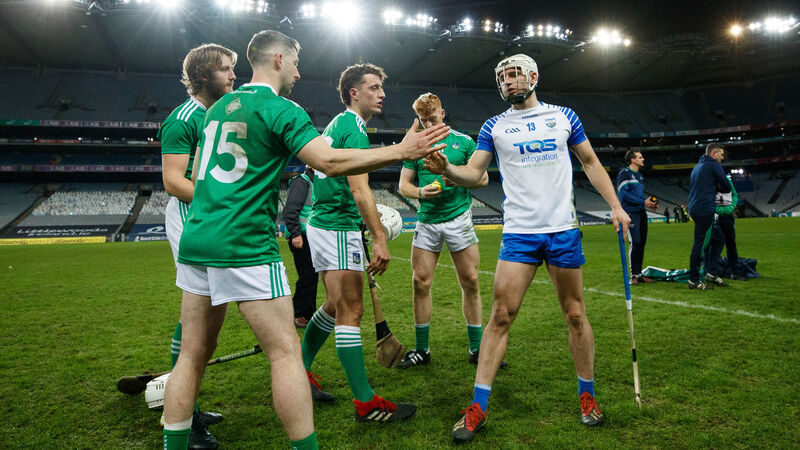John Fogarty: Should inter-county GAA players be pushed up the vaccination queue?

Limerick’s Graeme Mulcahy shakes hands with Waterford’s Dessie Hutchinson after the All-Ireland final last month.
Try from €1.50 / week
SUBSCRIBE
Limerick’s Graeme Mulcahy shakes hands with Waterford’s Dessie Hutchinson after the All-Ireland final last month. Picture: Inpho/James Crombie
At the start of December, Teneo Ireland CEO Mick O’Keeffe posted on Twitter a link to a piece about when company chief executives should receive a Covid-19 vaccine.
Dismissing our vain attempt to hop a ball with him about emulating Father Ted character Fr Joe Briefly and looking for two parachutes, the former Dublin footballer explained why he highlighted the article published on the website of Korn Ferry, the global management consulting company.
Already a subscriber? Sign in
You have reached your article limit.
Annual €130 €80
Best value
Monthly €12€6 / month
Introductory offers for new customers. Annual billed once for first year. Renews at €130. Monthly initial discount (first 3 months) billed monthly, then €12 a month. Ts&Cs apply.
Newsletter
Latest news from the world of sport, along with the best in opinion from our outstanding team of sports writers. and reporters
Newsletter
Latest news from the world of sport, along with the best in opinion from our outstanding team of sports writers. and reporters
Wednesday, February 11, 2026 - 10:00 PM
Wednesday, February 11, 2026 - 10:00 PM
Wednesday, February 11, 2026 - 10:00 PM
© Examiner Echo Group Limited